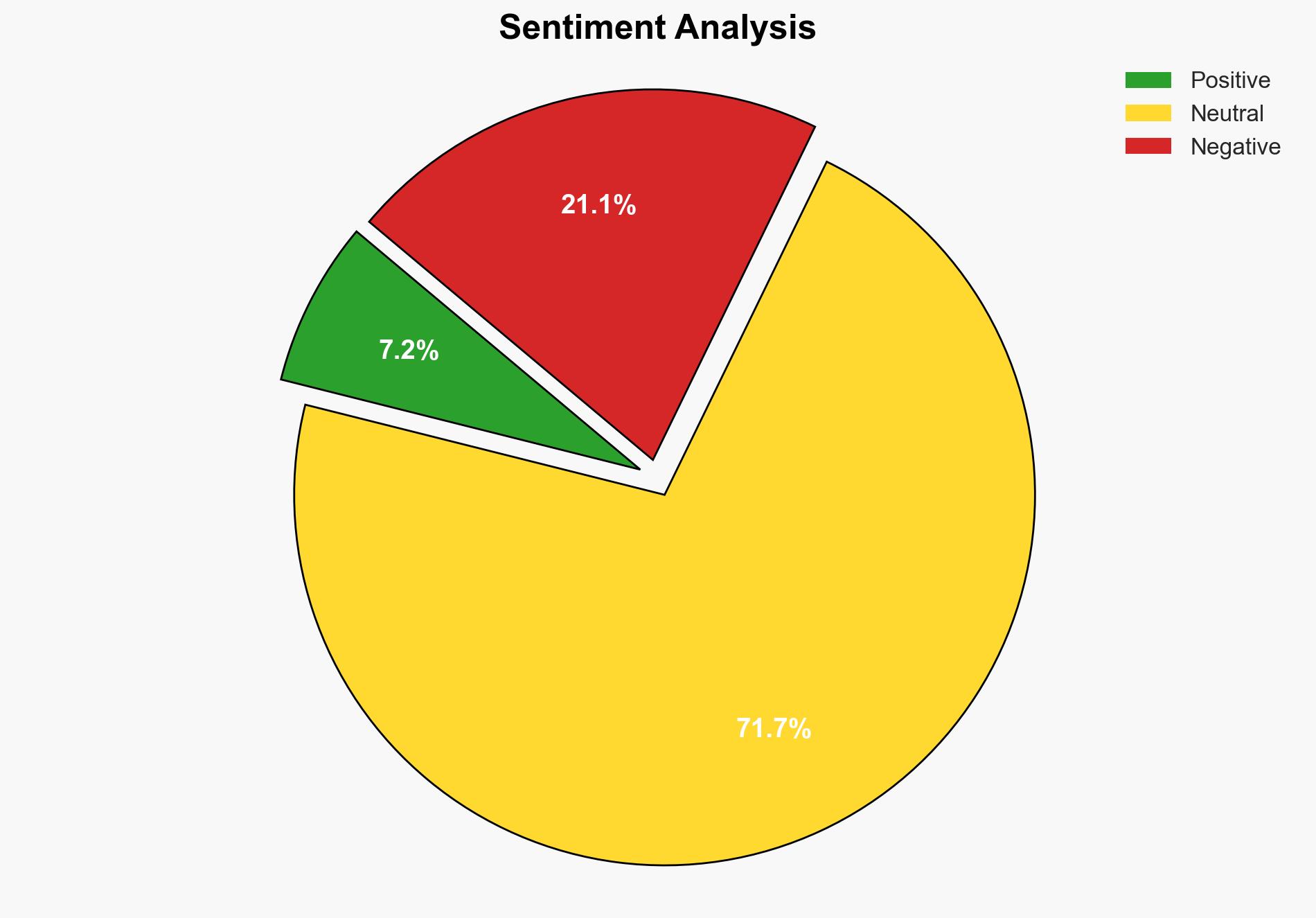Middle East updates Syria Iran at focus of EU meetings – DW (English)
Published on: 2025-03-17
Intelligence Report: Middle East updates Syria Iran at focus of EU meetings – DW (English)
1. BLUF (Bottom Line Up Front)
The European Union is intensifying its focus on Middle Eastern affairs, particularly concerning Syria and Iran. The EU is hosting a donor conference to address the humanitarian crisis in Syria, with significant financial pledges from Germany and the UK. Concurrently, tensions are escalating in the region, with increased military activities involving Iran-backed groups and responses from neighboring countries. The situation presents both humanitarian and security challenges that require coordinated international efforts.
2. Detailed Analysis
The following structured analytic techniques have been applied for this analysis:
General Analysis
The EU’s donor drive aims to alleviate the humanitarian crisis in Syria, exacerbated by ongoing conflict and the displacement of millions. Germany and the UK have pledged substantial financial support, highlighting the international community’s commitment to Syrian recovery. Meanwhile, tensions involving Iran have intensified, with accusations of Iranian backing of Houthi attacks in Yemen and Hezbollah’s alleged involvement in cross-border conflicts with Syria. These developments underscore the complex geopolitical dynamics in the region, where proxy conflicts and direct military engagements pose significant risks to stability.
3. Implications and Strategic Risks
The ongoing conflicts in Syria and Yemen, coupled with Iran’s involvement, present significant risks to regional stability and international security. The potential for escalation into broader conflicts is high, particularly with the involvement of major powers. The humanitarian crisis in Syria remains a critical concern, with implications for migration, regional security, and international relations. Economic interests, particularly in the Red Sea shipping lanes, are also at risk due to Houthi attacks.
4. Recommendations and Outlook
Recommendations:
- Enhance diplomatic efforts to mediate conflicts and reduce tensions in the Middle East, particularly involving Iran and its proxies.
- Increase humanitarian aid and support for Syrian refugees and internally displaced persons to mitigate the humanitarian crisis.
- Strengthen maritime security measures in the Red Sea to protect international shipping lanes from Houthi attacks.
Outlook:
In the best-case scenario, increased international cooperation leads to a de-escalation of conflicts and improved humanitarian conditions in Syria. The worst-case scenario involves further military escalation, potentially drawing in additional regional and global powers, exacerbating the humanitarian crisis. The most likely outcome involves continued tensions with intermittent diplomatic engagements and ongoing humanitarian efforts.
5. Key Individuals and Entities
The report mentions significant individuals and organizations, including Bashar Assad, Donald Trump, Joseph Aoun, and Ursula von der Leyen. Additionally, entities such as the European Union, Hezbollah, and the Houthi rebels are central to the developments discussed.





